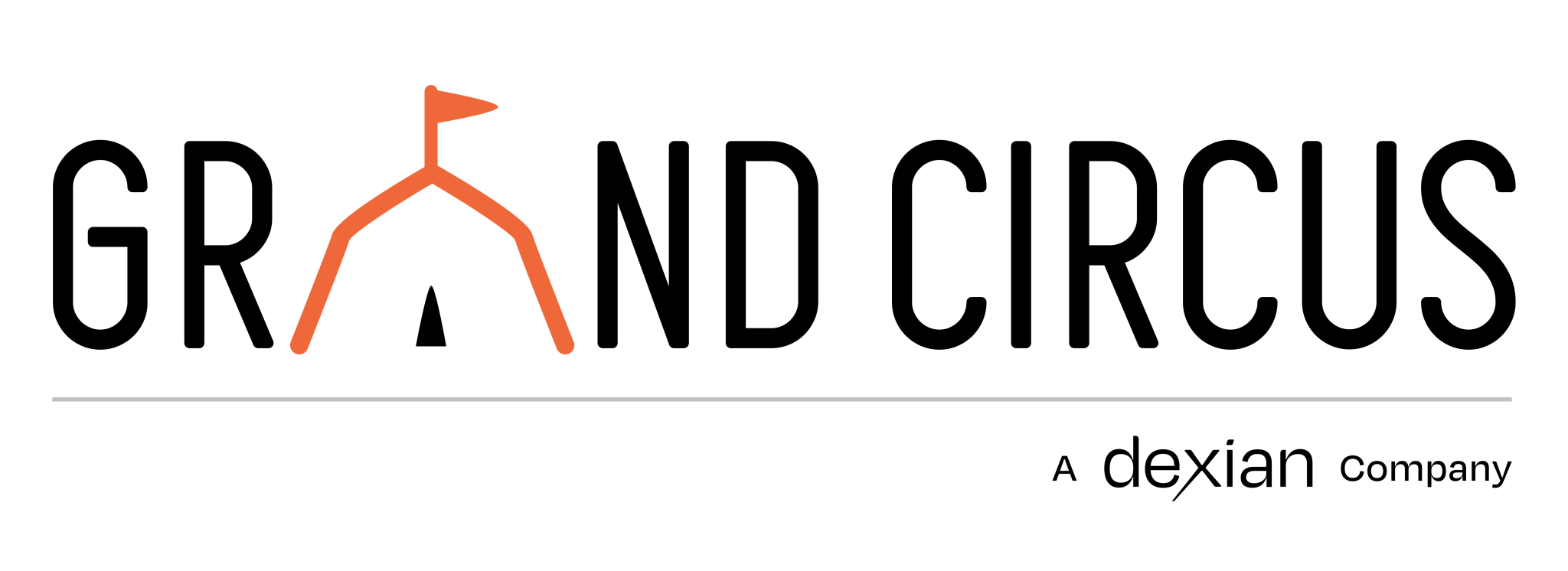We talk to a lot of aspiring developers here at Grand Circus. One of the questions we hear most often is “What do full stack, back end, and front end mean?
Let’s break it down.
What’s a “stack”?
The term “stack” refers to the layers of languages, frameworks, and tools used to build a project. Within a software project, there are languages, tools, and frameworks for defining visual aspects (the front end) and for defining what happens behind the scenes (the back end). Together, all of these components are the “stack.”
What are front-end and back-end development?
For some projects, teams are split into front-end and back-end development. David Wolverton, a Grand Circus senior instructor, breaks it down like this:
Consider a news website. It has a homepage, articles, and a way to log in and pay for a subscription.
- Defining the look and layout of the pages
- Making the links and buttons work correctly
- Ensuring the news feed updates at the right time and displays in the right place
The back-end developers write code for what happens behind the scenes, for example:
- Storing and searching for all of the articles efficiently
- Securing user passwords
- Writing algorithms to determine what content to show each user
What is full-stack development?
Some projects or teams aren’t organized into front-end and back-end developers. Instead, developers work on all aspects of the project, including both front-end and back-end portions. When you work with both the front end and the back end, you’re a “full-stack developer.” These developers are highly desirable for tech startups, small businesses, and large corporations alike.
Why do employers look for full-stack developers?
Whether you prefer front-end development or back-end, understanding the full stack can help make you a more competitive candidate and help your team once you’re in a job. A full-stack developer offers a broader range of knowledge and skills. Employers across industries are eager to find developers with that broad skill set.
Our Director of Learning, Peter Guenther, explains:
A full-stack developer offers an employer more flexibility. A full-stack dev, even if focused on a front-end or back-end team, is better able to understand and communicate with the other team, and can also shift or take on additional opportunities when there’s a need. It also says to an employer you’ve taken the time to learn multiple languages or frameworks, which means you’re going to be better able to learn another one.
Is it harder to learn full-stack development?
To be able to work on the full stack, a developer needs to be able to work in a variety of languages and technologies. Does it make it harder to learn? “Not necessarily,” says David Wolverton.
Most programming languages use the same concepts and patterns. Wolverton explains, “If C# has variables and loops, you can bet Python does too.” The specifics will change between languages, but the concepts stay the same. As you build on those foundations, it becomes easier to pick up each new language.
When you learn to code, you learn core skills that apply to front-end, back-end, and full-stack development. Core skills include writing and running source code, debugging, logic, and source control. These fundamentals apply to any kind of development.
Full Stack bootcamp offers a competitive advantage.
Employers today are looking for what we call “T-shaped professionals.” The horizontal bar of the T represents broad knowledge and the vertical bar represents deeper expertise. Teams value people with a high-level knowledge of a lot of different areas and deeper knowledge in a specific area.
Full Stack bootcamp gives you both of these. All students learn HTML, CSS, JavaScript, and one or more databases. These skills form the top of the T, the broad knowledge. Then, you develop deeper knowledge in specific areas: C# and Angular in the Full Stack C# bootcamp, or ReactJS and Node/Express in the Full Stack JavaScript bootcamp.
Peter explains this best:
When I’m teaching students, I always promise them that in 5 years they’re not going to be using the specific language I’m teaching. Many of our grads from a few years back have had their roles shift to a different language or have taken a new role that uses a different stack. Even if you stay in the same language, the languages themselves change and sometimes take on great features from other languages. In any case, as a T-shaped professional, you’re better positioned to qualify for a range of jobs and to learn new technologies for others.
The world of technology and software development is constantly evolving. As a full-stack developer, you’ll be prepared for those changes.
Learn more at our upcoming Bootcamp Info Sessions, or take a free intro workshop to try your hand at coding!
